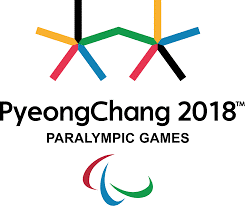By Candice Lingam-Willgoss

Just as the dust has started to settle on the most successful Winter Olympics to date for Great Britain a new team of superstars have landed in PyeongChang. Today sees the start of the Paralympics which run from 9 to 18 March 2018. With 80 medals up for grabs in six Paralympic sports the next 10 days promise to excite, amaze, and inspire the next generation of Para-athletes.
A reminder: where is Pyeongchang?
Pyeongchang is located in the Taebaek Mountains of South Korea, approximately 180km east of the capital city Seoul. Pyeongchang will be the third Asian city to host the Winter Games; the first two were in Japan, at Sapporo (1972) and Nagano (1998). Events are taking place at two main locations Alpensia Resort and Gangneug Olympic park with several other standalone venues for the snow based sports.
What events are there?
There are six winter Paralympic sports:
- Alpine skiing
- Biathlon
- Cross-country skiing
- Ice sledge hockey
- Snowboarding
- Wheelchair curling
This is the first time that snowboarding has been added as a separate discipline and will include banked slalom and board cross.
Can Team GB win any medals?
In short yes, Team GB are sending their biggest team since 2006 comprising of 17 athletes across 5 of the 8 disciplines (Alpine skiing, biathlon, cross-country skiing, snowboarding and wheelchair curling).
The biggest medal prospect has to be Millie Knight, having lost her sight at aged six she became the youngest person ever to compete for Team GB at the Winter Paralympic games in Sochi at only 15 years old. Roll forward 4 years and she is coming into the Pyeongchang games having won a gold and two silver’s at the 2017 World Para Alpine Skiing Championships in Italy. Let’s see if she and her guide Brett Wild can improve on her 5th place she got at Sochi.
With snowboarding featuring for the first time as its own discipline the trio of GB Paralympic snowboarders are a group to watch. Flag bearer Owen Pick lost his leg following an explosion in Afghanistan in 2010 and saw snowboarding on the television during his rehab. In the 2017 World Championships Pick won silver in the banked slalom and he is hoping for a double at this year’s games where he will also compete in the snowboard cross event.
2 years ago Scott Meenagh hadn’t put on a pair of cross country skis but he surprised the winter sport’s world and has qualified in six events over two disciplines of cross-country and biathlon.
Others to watch
The Canadian cross-country specialist Brian McKeever has 10 Winter Paralympic gold medals to his name already and while he may not be able to surpass the success of Germany’s Gert Schonfelder’s who currently has 16 medals he could get a step closer in Pyeongchang.
French alpine skier Marie Bochet competed in 4 events in Sochi 2014 and won them all, in Pyeongchang she aims to go one better and is competing in five events saying ‘I want to win … all the time’
Home advantage may not be something regularly associated with winter sports but Korea are hoping it helps them in their quest for their first ever winter Paralympic gold. A medal is a possibility potentially from alpine skier Jae Rim Yang.
So for now sit back and watch round 2 of the entertainment on the snow and ice.



